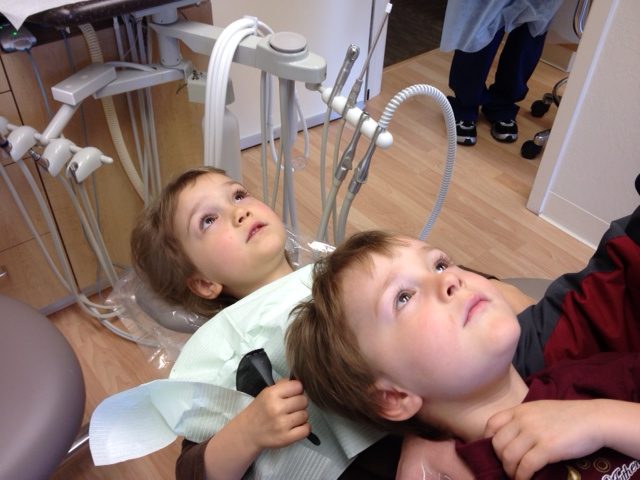401 GREGORY LANE, SUITE 236, PLEASANT HILL, CA 94523 / PH (925) 363-4200
May Hayder, DDS & Bessma Hayder, DDS
Board-Certified Specialists in Pediatric Dentistry
Why a pediatric dentist?
Just as pediatricians specialize in addressing a child's medical needs, pediatric dentists are specially trained to address their oral health. They undergo an additional 2-3 years of specialty training after completing dental school--in areas such as child growth and development, child psychology, child behavior, and dental techniques for primary (baby) teeth. They are also qualified to address the needs of special needs patients.
Drs. Hayder focus not only on ensuring your children's best oral health, but also their best overall physical and emotional health. They are patient and nurturing in their approach, and strive to help children feel more confident in themselves as they grow older.

Dr. Hayder is patient and calming. She is very conscientious about procedures and always errs on the side of caution. I know that Dr. Hayder will help build a good dental/dentist relationship as my child grows.
--Julee in Martinez
What does it mean to be a Diplomate of the American Board of Pediatric Dentistry?
To be certified by the American Board of Pediatric Dentistry (ABPD), eligible pediatric dentists must complete a voluntary two-part examination process. This process can only be completed by pediatric dentists who have completed 2-3 years of postgraduate training in addition to their 4 years of graduate education in dental school. The first examination provides evidence of the pediatric dentist's advanced training in pediatric dentistry. The second allows the pediatric dentist to demonstrate proficiency in diagnosis, treatment planning, and clinical care. The ABPD then requires that the pediatric dentist continue to engage in a regulated education process, adhering to the most current American Academy of Pediatric Dentistry (AAPD) Policies and Guidelines. The ABPD certifies pediatric dentists based on standards of excellence that allow for high quality oral health care for infants, children, adolescents, and patients with special health care needs.
Why are baby teeth important?
In order to encourage education and prevention, both the American Academy of Pediatrics and the American Academy of Pediatric Dentistry recommend that children have their first dental visit by age 1. Baby, or primary, teeth sometimes don't fall out till the early teen years. They are important in healthy nutrition, and in allowing for the normal development of the jaws and permanent teeth. Cavities in primary teeth can lead to serious infections if left untreated.